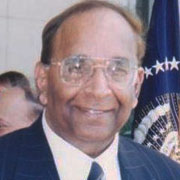
Krishna Dronamraju
Foundation for Genetic Research, President of the Foundation for Genetic Research,USA
Title: Genomics and ELSI (ethical, legal, and social issues)
Biography
Biography: Krishna Dronamraju
Abstract
J.B.S. Haldane (1923) was the first to emphasize the ethical impact of Genomics. Gene-based diagnostics and therapeutics are being widely integrated into healthcare today. However, there are barriers to accessing these new technologies for the public worldwide. An important role for all nurses will be to make sure that the health and social needs of the public are being met, including addressing the technological inequities in accessing genomic health care worldwide. This requires a major shift in emphasis to a more global view of health and disease.
The basis for equal access to genomic health care around the world can be found in the World Health Organization’s Proposed Guidelines on Ethical Issues in Medical Genetics and Genetics Services. The core public health function of assurance includes making sure that the general public has access to and quality of genomic healthcare, and informing populations about relevant genomic health issues and services. The World Health Organization document emphasizes the importance of education about genetics for the public and all healthcare professionals noting the profound economic and technological inequities that exist between nations.
Governmental agencies can assist in promoting genetic and genomic healthcare around the world. In the United States, the Centers for Disease Control and Prevention (CDC) has taken a leading role in addressing issues of access to genetic and genomic resources by creating multiple tools and resources that address the role of genetics in public health. Health care workers can take a leading role working with state, federal, and international health agencies to provide guidance to health systems with regard to decisions about utilization of genetics and genomics services. The opportunities to fully participate in genomic healthcare throughout the healthcare continuum, for all populations, and at all stages in the lifespan are multiple. The challenge is to ensure that the workforce is prepared and competent to provide genetic and genomic care. Knowledge and understanding of current and emerging ethical issues is an essential component of this knowledge base.

